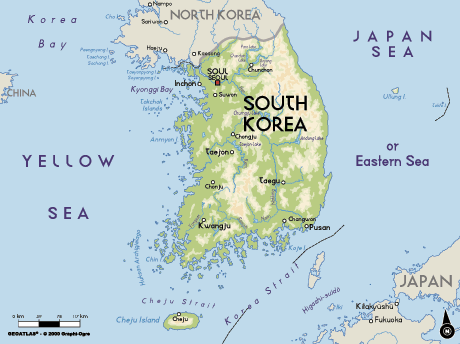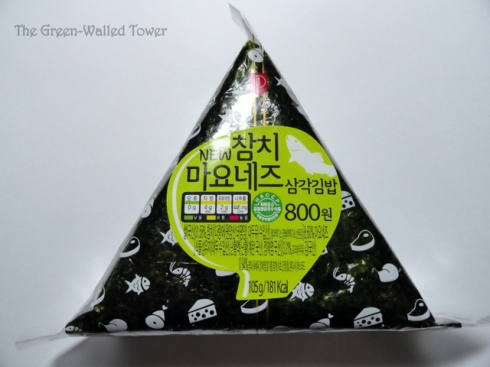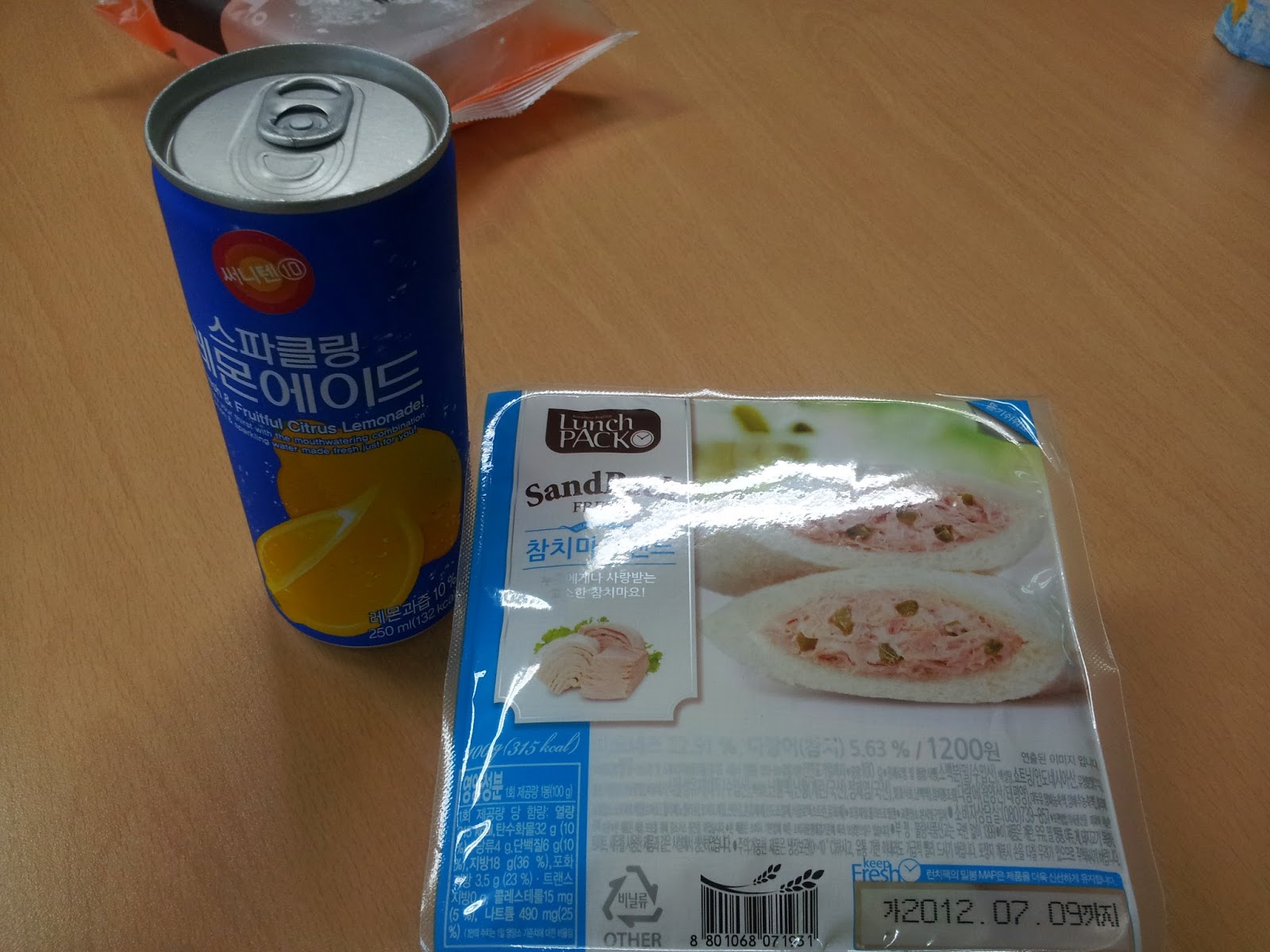Today, we're going to talk about a lighter subject--how to be a good Israelite while being in another country. In the summer of 2012, Sven and I spent 7 weeks in South Korea. It was part of a study-abroad program offered by our university. The program worked like this; three weeks of teaching English to Korean university students followed by four weeks of taking classes. The teaching/learning load was not heavy--six hours of classes a day with Fridays off. So, naturally, a large part of the whole thing was experiencing the country and culture of South Korea.
 |
| Link |
For us, food was, without a doubt, the most difficult aspect of our travel. At home, it is quite easy to avoid eating things we don't want to eat. In a foreign country, it becomes harder. As I wrote in an earlier post, unclean food additives are oftentimes found in the most unlikely of places. Being knowledgeable about the ingredients and being able to read the labels goes a long way to avoiding unclean foods. Obviously, the biggest challenge of travelling across the world is the language barrier.
The first step to maintaining your way is to educate yourself. The second is to strap in for the long hall. We knew before heading out on our trip that it would be difficult; research told us that shellfish and pork are very popular meats in Korea, and that flavorings made with one or the other were often included in the most innocuous dishes. Nutrition labels might not contain all of the ingredients, and they'd probably be written in Hangul, which I could barely read at the time. We developed strategies to combat this--eat simple foods, avoid known problem foods, and call upon our resources (Korean friends) when in doubt. But, as they say, the battle plans only last until the first shot is fired. Things went quite differently than we had expected.
The first problem we met with was poverty. Due to miscommunication and bad information, Sven and I found ourselves arrived in South Korea with only $100 to our names. We had been told that we would have our plane tickets refunded by the program when we arrived--about $3,000 total. We'd been counting on that money to see us through the seven weeks. Upon our arrival, we discovered we would not be paid until our teaching was done. I had brought $100 as a small safety net for any emergency we might meet. After we paid our bus fare to travel the 2 hours it took to go from the airport to Dankook University, we had $74.
 |
| Less than this. For two people. For three weeks. (Link) |
 |
| For example, this soup--delicious meal, or deadly poison?? |
We quickly developed a rapport with the food staff--I often used the phrases, "돼지 고기 있어요?" "새우 고기 있어요?" (Literally, and badly, "Is there pork meat?" "Is there shrimp meat?"). And some of the nicer ones would warn us away from dishes containing these things by shaking their heads at breakfast or by making the "X" sign with their fore-arms, indicating we shouldn't eat it. Some of our new friends in the program would help as well when a dish was more mysterious, "I think these are the pork nuggets", etc etc. However, we could not always depend on the goodheartedness of our fellow men. We went hungry on more than one occasion due to the language barrier. One memorable time included a dinner of kimbap we fed to a local cat when a new-to-us cook included ham after assuring us there was none.
 |
| To be fair, ham is usually included in this dish. (Link for pic) |
 |
| Praise the Lord for THESE (link) |
 |
| Did I mention tuna sandwiches? This was dinner one night. The best part was that each package contained TWO sandwiches. |
Luckily for us, the drinks were very cheap, and each floor had water spigots. If we couldn't eat, we'd share our juice, tighten our belts, and do our best to fill up with water. Happily for us and our health, the starving time did not last forever. A beautiful, wonderful, patient, savior friend of mine came to the rescue. She led us to a bank where I could withdraw from my American account and receive Korean Won! Still, we spent sparingly--it was my college fund I was pulling from.
After the three weeks, we received our plane refunds. Finally, we could travel, shop, and eat!
 |
| Pictured: Over 1,000,000 Korean Won, also, the face of Happiness |
 |
| Shabu-Shabu, for example, provides choice of spicy, seafood, or vegetable broth and beef, chicken, pork, seafood, or special beef for the meal. |
Things were definitely looking up. Our change of fortune did not guarantee perfect experience, however. For example, once when ordering bulgogi ("Fire meat"--a tasty teriyaki-like beef meal), we were instead presented with the "more special" bulgogi-plus-squid dish. I am ashamed to say, but our perseverance did not win out that day. We picked out the squid and my Korean friend who was along with us happily ate it while we ate the beef. If given the choice to do that over, I would have caused a stink and asked for plain old bulgogi. Oh well.
Part of the experience that eventually allowed for more branching out was more education. I was taking beginner's Korean (three hours a day!), and was learning more and more how to ask questions and get information. It became easier to peruse menus and find edible options. We still relied on the help of others--our first night in the Chicken-and-Beer place, we randomly ordered a stir fry dish. Sensing our general lost-puppy American-ness, our kind server showed us a picture of that dish on his phone. Stuttering in my still-developing Korean, I asked for, "no no, not that. Chicken. Just chicken." and lo and behold, we were given the glorious meal pictured above. We continued to eat at that restaurant at least once a week, always trying to talk a little more each time to that server. The same went for the lady who was the proprietor of the Shabu Shabu place.
With more knowledge and experience, finding food became almost easy. As the days went by, we experienced less and less culinary hiccups. When we traveled around, I carried a notebook with me where I had written helpful phrases in Korean, as well as the Korean names for typical food items. As we became more experienced, the notebook became more full. By the time we left, we were comfortable ordering food, knew our way around a menu, and were quite well-fed.
Though scary at first, being a stranger in a strange land was ultimately not that terrible. There were ups and downs. We were sometimes hungry and miserable, but we learned, eventually, How to Food in a Foreign Place.
Lessons Learned:
1) Research beforehand
2) Stick to your guns
3) Continue learning
4) Ask others for help

Sage advice. Way to live your faith.
ReplyDeleteThank you :)
Delete